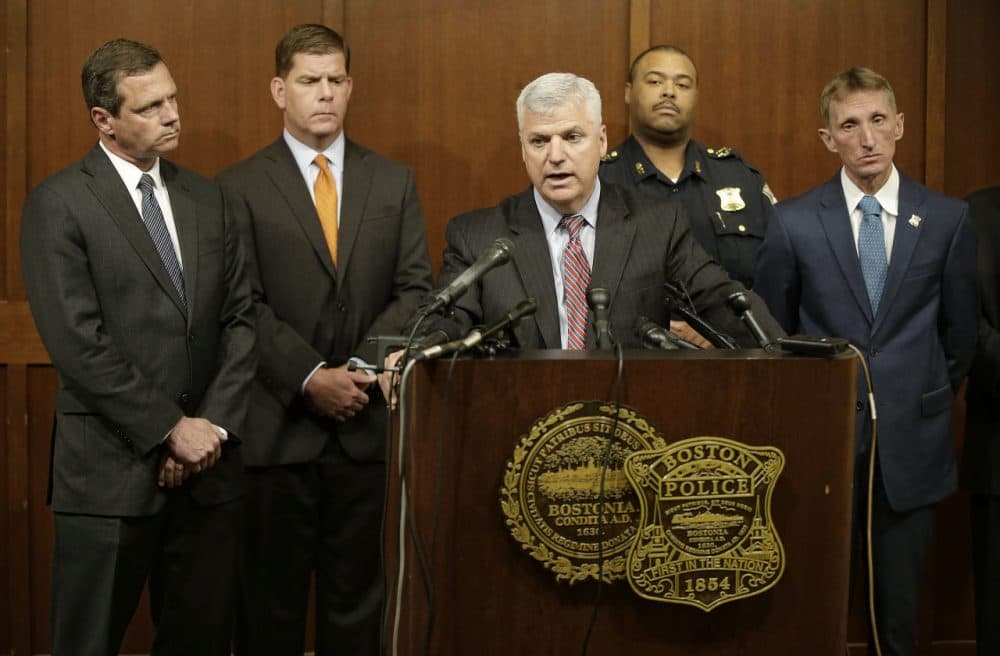Advertisement
How Do You Police The Police?
Resume
According to The Guardian, the number of people killed by police in the United States is already well over 500 this year. A recent report from Amnesty International says that laws on when the police can use lethal force in all 50 states fall short of international standards. And that nine states — including Massachusetts--have no statutes at all that govern when a law enforcement officer can shoot to kill.
So when encounters with police prove fatal, who should determine whether the use of lethal force was justified?
Guests
Justin Mazzola, researcher with Amnesty International.
Walter Katz, police oversight attorney in California. He tweets @walterwkatz
R. Michael Cassidy, professor of law at Boston College and former assistant attorney general.
More
Amnesty International: Deadly Force, Police Use of Lethal Force in the United States
- "There are few acts committed by local government that draw more controversy than a police department’s use of lethal force. Broad cross-sections of the public have lost trust in local law enforcement agencies due to their perception of biased investigations of such deadly-force incidents."
Massachusetts Lawyers Weekly: Who Should Investigate Police-Involved Killings
- "The recent deaths of unarmed black men at the hands of police officers have focused public attention on racial injustice in America. This outcry has also prompted calls for reconsidering how investigations into police-involved killings are conducted, and by whom."
This segment aired on June 30, 2015.